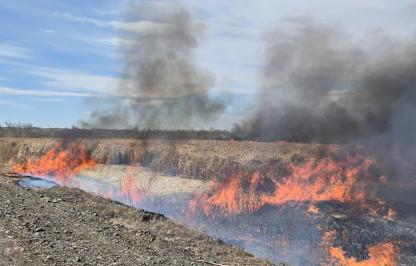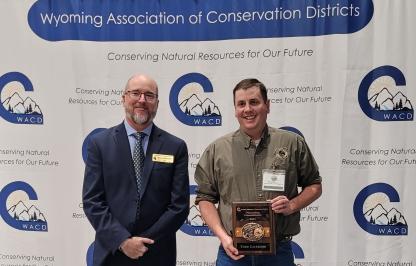Monitoring the prevalence and distribution of chronic wasting disease (CWD) is a priority for the Wyoming Game and Fish Department, and the results of these efforts show limited numbers of new cases in the far western Wyoming. Notably, there have been no more new CWD cases in the Pinedale and Jackson regions so far this fall.
“Last year, we had a CWD-positive deer in Star Valley. It was a priority for us to step up our surveillance in that area to try and keep a close eye on the prevalence and distribution of CWD there. So far we have not seen any additional positive deer in that part of the state,” said Scott Edberg, deputy division chief of the Wildlife Division. “Game and Fish is committed to maintaining an active surveillance effort there, and we are greatly increasing our CWD efforts on our elk feedgrounds more than ever before, including dedicated personnel to monitor and address CWD. We will keep the public informed about the results of our efforts.”
Annual surveillance efforts for the disease in deer, elk, and moose populations have been underway since the 2016 hunting season began. As of Oct. 31, the Game and Fish Wildlife Health Lab analyzed 1,645 CWD samples from around the state. Of those, 1,482 were from hunter-killed animals with 85 positive CWD tests. Sixty-five samples came from targeted animals-or animals showing signs of CWD, and 12 of those were positive. The remaining 98 samples, from road-killed animals, resulted in four positives. Game and Fish will continue its CWD sampling efforts for the remainder of the 2016 hunting season as well as actively sample target animals and road-kills throughout the year.
Three new deer hunt areas have been identified so far this year: hunt area 7 near Newcastle where a doe mule deer was harvested on Oct. 1; hunt area 128, where a buck mule deer was harvested about 12 miles north of Dubois on Oct. 8; and hunt area 110, west of Cody, where a buck mule deer was harvested on Oct. 28.
“Increased information helps Game and Fish execute our state CWD management plan to try to slow the spread of CWD in the west and improve the health of the herds,” Edberg said.
Game and Fish reminds hunters they play a significant role in monitoring the distribution of this disease and provide valuable information for managing CWD. If you see a deer, elk or moose that appears to be sick or not acting in a normal manner, please contact your local game warden, wildlife biologist or Game and Fish office immediately.
Please visit the Game and Fish website for more information on chronic wasting disease transmission and regulations on transportation and disposal of carcasses. The Centers for Disease Control and the World Health Organization recommend that people should not eat deer, elk or moose that test positive for CWD.



